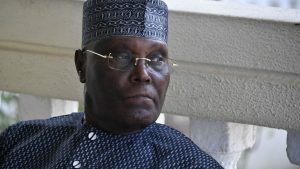Namibia: Govt Pumps N$1.4b Into Drought Relief … N$635m Earmarked for This Year

The government, in collaboration with development partners, local institutions and private individuals, spent approximately N$1.4 billion on humanitarian aid and resilience-building initiatives to address the devastating impact of prolonged drought and food insecurity across the country.
For the 2025/2026 financial year, the Office of the Prime Minister (OPM) has requested N$635.9 million, of which N$220.8 million is allocated to continue the National Drought Programme, set to run until 30 June 2025.
Prime Minister Elijah Ngurare described the drought situation as urgent and unprecedented.
“We are facing one of the worst droughts in Namibia’s recent history.
Two consecutive years of failed rains have left our people vulnerable and in desperate need of support,” he said during a budget presentation in Parliament last week.
In the 2024/2025 financial year, the OPM received a total allocation of N$1.94 billion.
Of this, N$1 billion was directed toward food relief and the implementation of the Commodity and Beneficiary Management Information System (CBMIS), a tool used to streamline aid distribution.
An additional N$86.7 million was spent on livestock marketing support, while N$87.8 million went toward water provision projects.
These included the drilling and rehabilitation of boreholes and completion of key infrastructure, such as the Onamatanga Waterline Project (Omusati region), the Omatjete Pipeline Project (Erongo region) and the Okangwati-Ohamaremba Water Project (Kunene region).
The remaining funds were used to support national events, including N$38.4 million for 16 State and official funerals, N$2.5 million for Heroes’ Day commemorations, and N$25.6 million for Independence Day celebrations.
Ngurare noted that partnerships with the World Food Programme (WFP) and United Nations Children’s Fund (UNICEF) have been instrumental in bolstering rural food security and promoting nutrition education.
“Through collaboration with WFP, we have launched rural transformation pilots in Ben-Hur and Okondjombo, while our partnership with UNICEF focuses on behaviour change to improve nutrition awareness and habits,” the premier stated.
For 2025/2026, N$585.9 million of the proposed OPM budget will cover operational costs, while N$50 million is earmarked for development initiatives.
Planned projects include the establishment of a National Emergency Operations Centre, development of a National Resilience-Building Strategy, a review of the 2009 Disaster Risk Management Policy, and an update to the National Strategy for Mainstreaming Disaster Risk Reduction and Climate Change Adaptation (2017-2021).
Additional allocations include N$80.3 million for public service management, N$73.5 million for e-Government information technology infrastructure upgrades, and N$177.9 million to support policy coordination and national food security initiatives.
Ngurare reiterated government’s commitment and responsiveness to provide humanitarian aid to affected communities.
“The government remains committed to enhancing disaster preparedness, improving food security and supporting vulnerable communities through strategic partnerships and efficient resources allocation,” he said.
By New Era.



